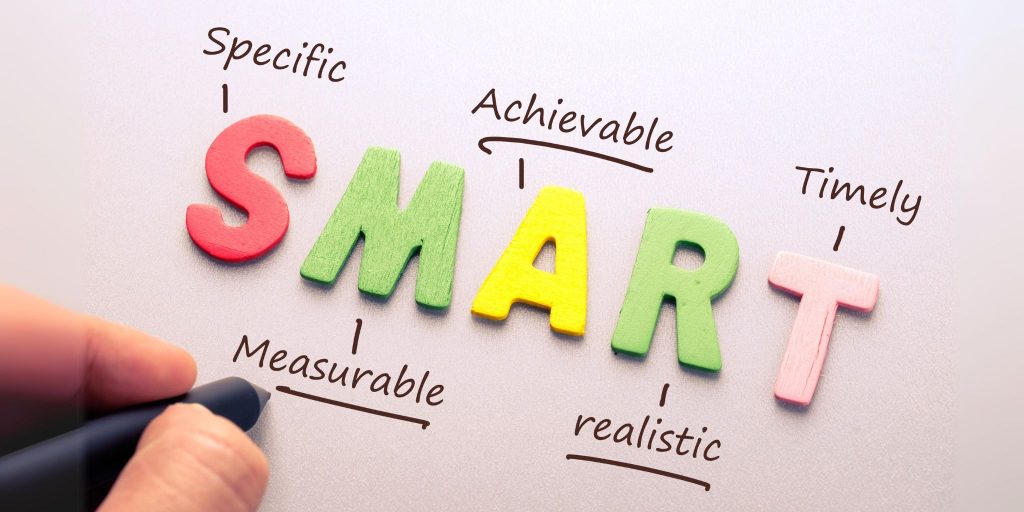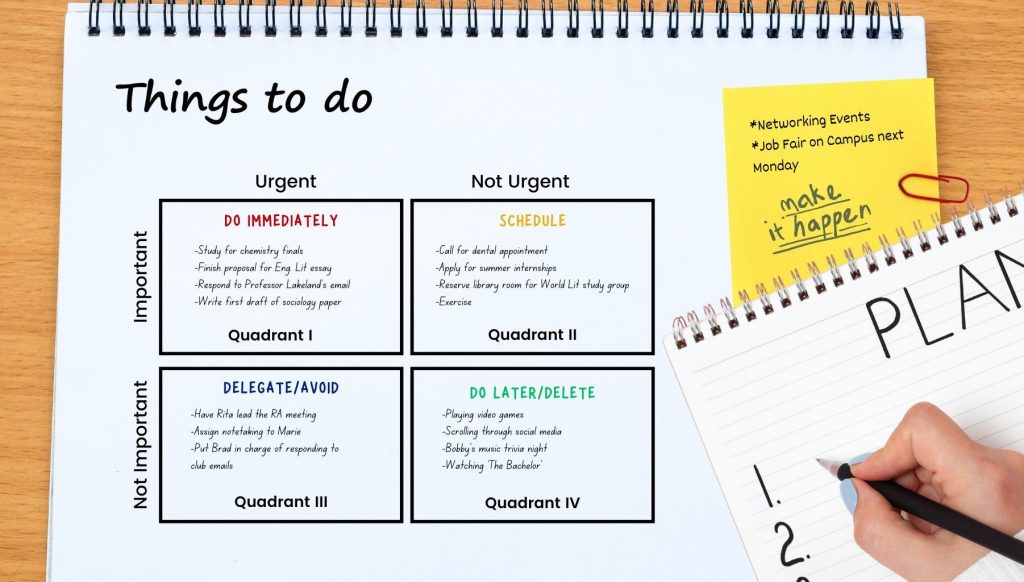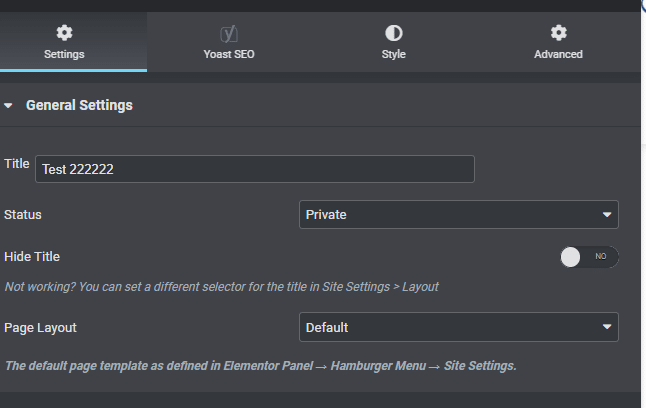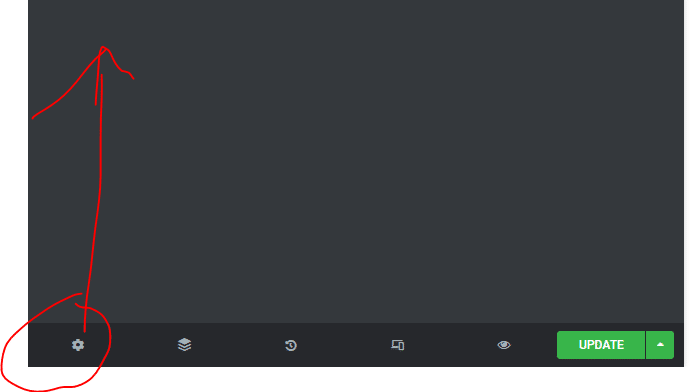
School is supposed to be exciting and rewarding, filled with learning opportunities. Not only does it allow you to study and learn, but it also prepares you for a brighter future. However, nothing is more alarming than experiencing burnout as a student.
The number is quite alarming: According to a recent Handshake survey, more than 80% of college students have experienced burnout during their undergraduate years. Nearly 30% reported feeling burnt out frequently, while only over 15% said they felt that rarely.
So, what does a student burnout look like? And, more importantly, how do you go about managing it?
Don’t worry, this article shares what you need to know about student burnout, including the warning signs to be wary of. Learn how to prevent it to promote your overall well-being and achieve academic success. Read on.
What Is Burnout?
Burnout is described as chronic stress that has been left unmanaged for a very long time. A condition that leaves those affected constantly feeling tired and drained, which could further escalate to anxiety, depression, and other mental health issues.
Burnout is often associated with the workplace. In fact, the World Health Organization (WHO) considers it an “occupational phenomenon,” defining it as “a syndrome conceptualized as resulting from chronic workplace stress that has not been successfully managed.”
However, burnout isn’t solely confined to the workplace. It’s prevalent in schools across many colleges and universities worldwide, and that’s where student burnout comes into the picture.
Student burnout is a type of mental exhaustion due to prolonged periods of school-related stress. It may be caused by a handful of factors, such as:
- Handling academic workloads (assignments, exams, projects, etc.)
- Demanding extracurricular activities (clubs, organizations, sports, etc.)
- Moving to a new city or place (having no family or leaving friends behind)
- Encountering financial issues (dealing with alarming student’s debts)
- Needing to get a job or a side hustle (to sustain day-to-day needs)
- Having accommodation issues (not comfortable with the dormitory)
- Struggling to make new friends or experiencing peer pressure or bullying
How do you know if you’re already burned out in school? Find out the warning signs of student burnout in the next section.
Warning Signs of Burnout Among Students
It’s normal for students to feel overwhelmed at school. This feeling is a regular part of academic life aimed at teaching students to handle pressure, become responsible, disciplined, and resilient, and ultimately hone their knowledge and skills.
However, student burnout is very real. This phenomenon affects many students in high schools, colleges, and universities around the world. It’s a serious condition that shouldn’t be ignored, whether you’re a student, parent, or teacher.
The Gitnux’s statistics illustrate the severity of the student burnout phenomenon:
- More than 10% of students in colleges and universities reported burnout in the past years.
- Over half of American teens claim they feel stressed out or burned out at least once a month.
- Student burnout rates are high (ranging from 5-75%) due to academic pressure, financial stress, and the lack of social support.
- A vast majority of college students (ranging from 5-75%) experience burnout, anxiety, and depression.

Given the alarming statistics above, it’s crucial to look for warning signs of burnout. As a student, assess yourself, know the symptoms, and take prompt action. As a teacher or parent, be wary of these signs so you can offer your students or children the needed help and support.
That said, here are the warning signs of student burnout:
- Lost enthusiasm in school: Academic life is supposed to be fun and exciting for most students. However, have you lost your will to go to school, meet up with your classmates, and learn from your teachers? The lack of motivation and interest is a sign of burnout in school.
- Consistent feelings of exhaustion: Are you always tired and drained at school? Beware: Consistent stress can always make you feel exhausted and fed up, which can lead to irritability and anger. These mixed feelings are signs of burnout in school.
- Poor academic performance: Almost every student aims to get good grades or pass their class at least. But are you struggling to excel in school, or do you constantly fail? The lack of focus and concentration caused by burnout yields low grades, which equate to poor academic performance.
- Arising mental health issues: Are you struggling with your mental health? Chronic stress in school can escalate into depression and anxiety, if left unattended. Burnout could be the main culprit, so be wary of consistent distress at school.
- Declining physical health: Are you eating less and not adequately hydrated due to academic workloads? Do you always lack sleep and regular exercise, because you’re preoccupied with studying? Academic struggles can cause burnout, compromising your overall health and well-being as a student.
Learn how to avoid and deal with student burnout in the next section.

How To Prevent and Handle Student Burnout
Student burnout is debilitating. It negatively impacts your physical health and mental well-being. It blocks the road toward academic success and compromises your quality of life. So, as a student, be aware of its warning signs and deal with it early on. Meanwhile, provide the needed help and support as a teacher or parent.
That said, here’s how to avoid and manage student burnout:
1.) Set your academic goals
It’s quite obvious that students seek to graduate early and on time. But behind this goal, you aim to enhance your knowledge and acquire certain skills. Maybe you want to become a teacher, an engineer, or a doctor. Having clear goals will push you further and help you manage burnout.
Danelle Ferreira, Crystal Specialist at AllCrystal, believes that knowing your purpose in school can make a difference in your academic life.
Ferreira says, “Your goals as a student should be crystal clear like those crystals we offer. Ask yourself: What do you hope to achieve, and what do you want to become in the future? Your purpose will guide you in achieving your dreams and ambitions. With this in place, there will be no room for student burnout.”
Further, Ferreira recommends setting SMART goals for the entire academic life:
- Specific: Go beyond goals, such as having passing grades or graduating on time. Be very specific, like hitting a GPA of 3.5 or earning a magna cum laude honors.
- Measurable: You must be able to measure your specific goals. The numbers on your report card will determine whether or not you’ll meet your primary objectives in school.
- Achievable: Assess your strengths and weaknesses so you can come up with realistic goals. However, never limit yourself—the possibilities are boundless!
- Relevant: Your academic goals should align with your deepest desires and aspirations. If you want to become an engineer, it doesn’t make sense to take a medical course.
- Time-bound: You must set your academic timeline, such as graduating on time. However, goals can be as simple as submitting projects early or taking an elective course.
2.) Harness the power of time management
Time management has always been a buzzword in business. However, it practically applies to the academic world. More than anyone else, students should learn how to manage their time, prioritize various tasks, and even take a break. Yes, they should master the art of time management!
Jesse Hanson, Content Manager at Online Solitaire & World of Card Games, suggests mastering the art of time management not only in business but in school.
Hanson explains, “It’s easy for students to get overwhelmed by tons of academic obligations. Think of endless quizzes, nerve-wracking recitations, and cumbersome projects. Consider things like sleepless nights, peer pressure, and even bullying. As such, it’s best to employ time management as key to organizing academic workload and compartmentalizing potential problems.”
Here’s the good news: As a student, you can employ various time management techniques to avoid burnout. Hanson recommends the following techniques:
- Eisenhower matrix: This matrix involves tackling academic tasks based on their order of urgency and importance. How do you decide what to prioritize and accomplish? Take a look at the quadrant below.

- Pomodoro technique: This technique entails taking short academic tasks with breaks in between. How does it work? When studying for exams, study for about 25 minutes, rest for 5 minutes, and repeat. It’s that plain and simple!
- Eat-that-frog rule: This rule requires you to tackle the most difficult workload, followed by the less complex tasks down to the easiest ones. As Mark Twain puts it, “Eat that frog alive; Don’t just stare at it.”
- Time blocking: This time management tactic involves creating time blocks for each and every academic task. It will help you manage your time more efficiently and effectively as a student.
- Two-minute technique: This technique delves into the idea that “if it only takes two minutes to accomplish a certain task, then do it.” You’ll thank your student self later for practicing and developing this habit!
3.) Practice the art of self-care
Self-care is essential in life, whether in the workplace or at school. Many know that it’s simply taking care of oneself. However, only a few truly understand and practice it by heart.
According to WHO, self-care is defined as “individuals, families and communities’ promoting and maintaining their own health, preventing disease, and coping with illness and disability, with or without the support of a health worker.”
Thomas Medlin, Co-founder at JumpMD, suggests practicing the art of self-care in the academic world.
Medlin explains, “As a student, you should learn to take good care of yourself. It isn’t just about cultivating good study habits. It involves taking a holistic approach by promoting overall health and well-being.”
Below are some self-care tips for preventing student burnout.
- Proper nutrition: It’s easy to see some students rely on canned goods or eat fast foods. However, eat healthily to nourish your body properly while in school. Take WHO’s food recommendations for a healthy diet, such as grains, legumes, fruits, vegetables, and food from animal sources.
- Enough hydration: Needless to say, drink plenty of water every day to stay hydrated as a student. The U.S. National Academies of Sciences, Engineering, and Medicine recommends these daily fluid intakes (DFIs): 15.5 cups (3.7 liters) for men and 11.5 cups (2.7 liters) for women.
- Regular exercise: Student life can be hectic and preoccupied with academic workload. However, it won’t hurt to stay active not only in summer but the whole year round. Nope, you don’t necessarily have to enroll in fitness classes or hit the gym. Find time to walk at least 30 minutes a day.
- Restful sleep: A restorative slumber can help you focus and concentrate in school. As such, make sure to have enough sleep every night. The Centers for Disease Control and Prevention (CDC) provides sleep recommendations for students: 9-10 hours for children, 8-10 hours for teens, and at least 7 hours for young adults.
- Time relaxation: Academic life can be very demanding. It’s vital to take the time to relax and unwind, like pursuing your hobbies or interests, spending quality time with family and friends, or taking a vacation. That way, you can avoid getting burned out as a student.
4.) Establish a support system in place
Academic life isn’t a walk in the park. You must stay on top of every facet of it: doing homework, taking exams, dealing with terror professors, handling peer pressure, and more. As a student, you can only do so much in taking care of yourself. Hence, learn to seek help from others, whether your family, good friends, or even mentors.
Grant Aldrich, Founder of Online Degree, highlights the value of a support system in the academic world. “As a student, you must connect with the right people when experiencing symptoms of burnout. Learn to ask for help by talking to your family, friends, and even mentors. They can provide you with the needed help and support.”
Aldrich recommends the following measures:
- Family support: This applies to parents as well. While students should learn to reach out to their parents, the entire families themselves should always offer love and support. At the end of the day, they are your number-one support system.
- School mentorship: Sure, some professors can make your academic life a living hell. However, a few others are real mentors who are willing to help their students wholeheartedly. Seek mentorship from them. They can go as far as referring you to financial aid available for students.
- Core group: It’s best to make a conscious effort to establish your core group. This group should consist of like-minded individuals with the same goals, passion, and interests. They can be your best of friends who genuinely care about you or your circle of classmates who support each other.
- Health professionals: Burnout can escalate to declining physical health like diseases and mental health issues, such as anxiety and depression. When confronted with one of these problems, seek medical or behavioral health. Health professionals can help you manage burnout before your situation gets worse!
Final Words
There’s no denying the impact of student burnout. Not only does it affect your physical health and overall well-being, but it also negatively affects your academic performance. Hence, it’s crucial to learn how to manage it immediately and effectively.
However, what better way to rise above this phenomenon than to identify and prevent student burnout right away?
Whether you’re a student, a teacher taking care of students, or a parent supporting your children, beware of its warning signs. More importantly, follow our practical tips for addressing this problem as promptly as possible. All these will help you rise above the student burnout predicament, ultimately achieving academic success!










